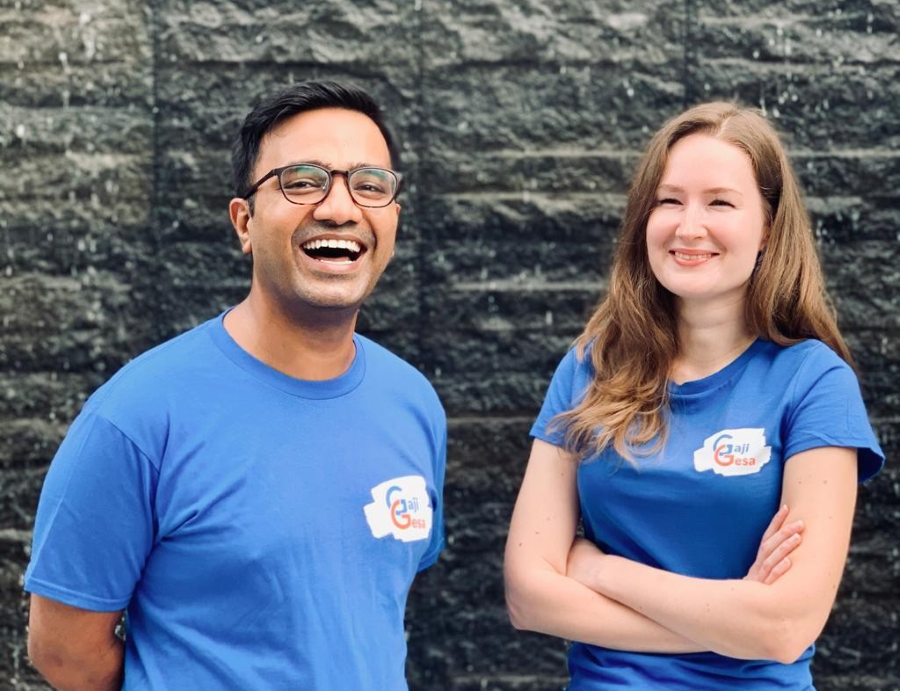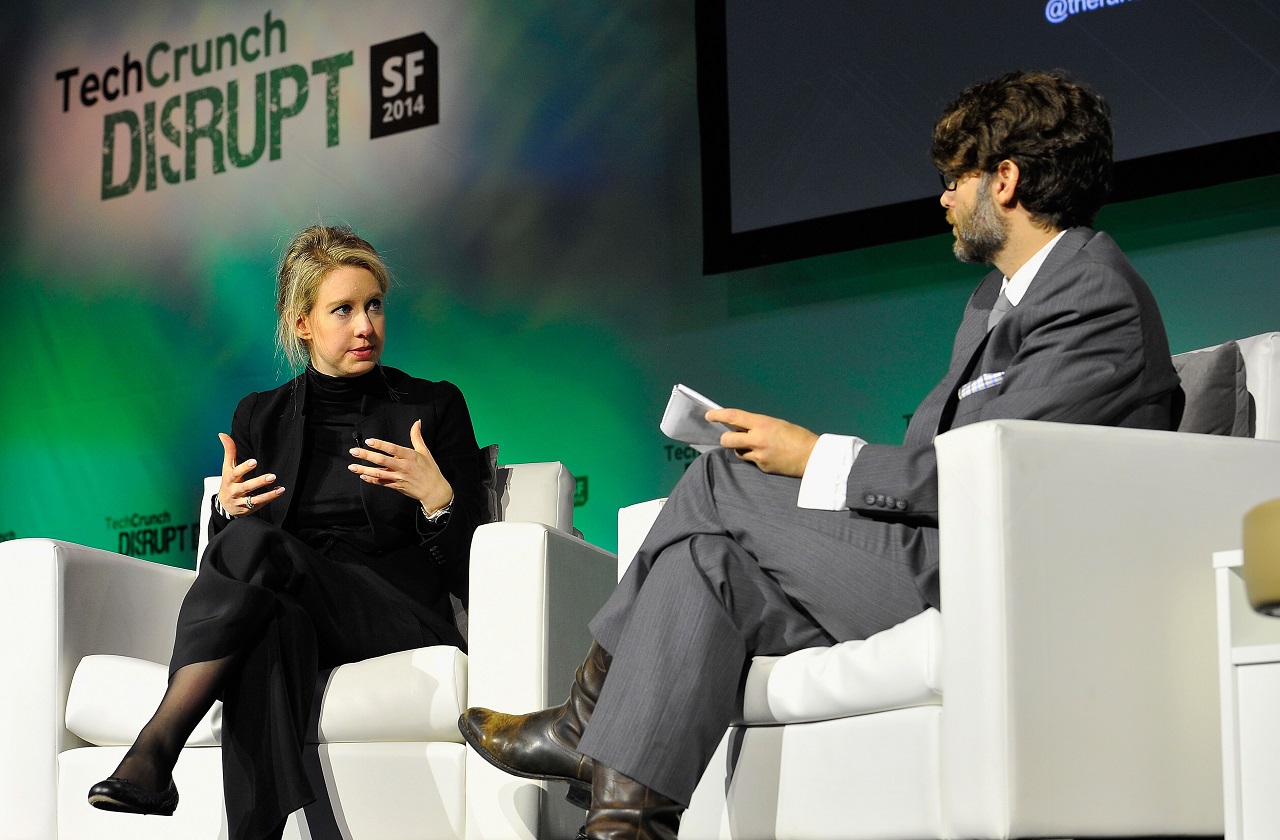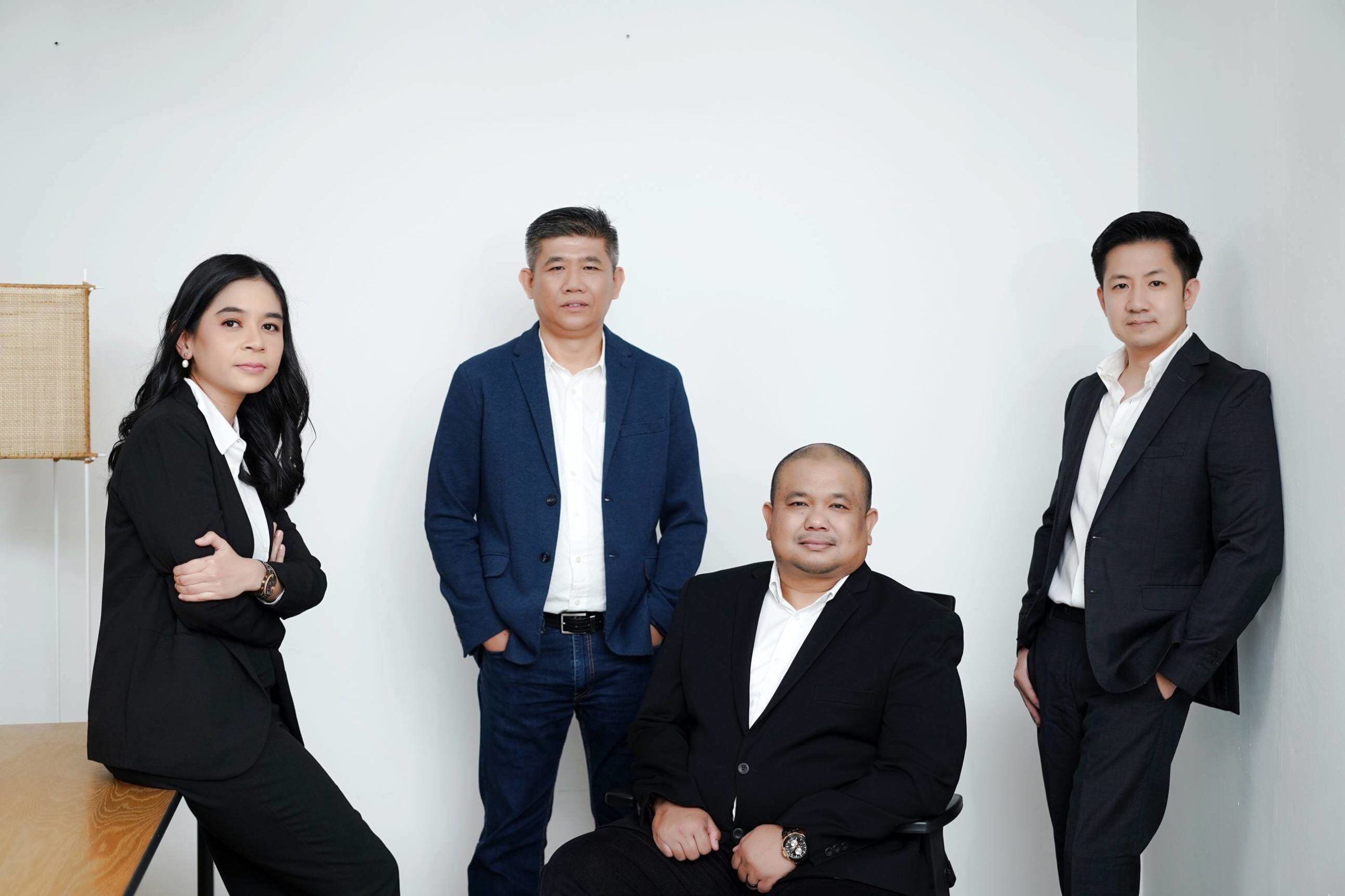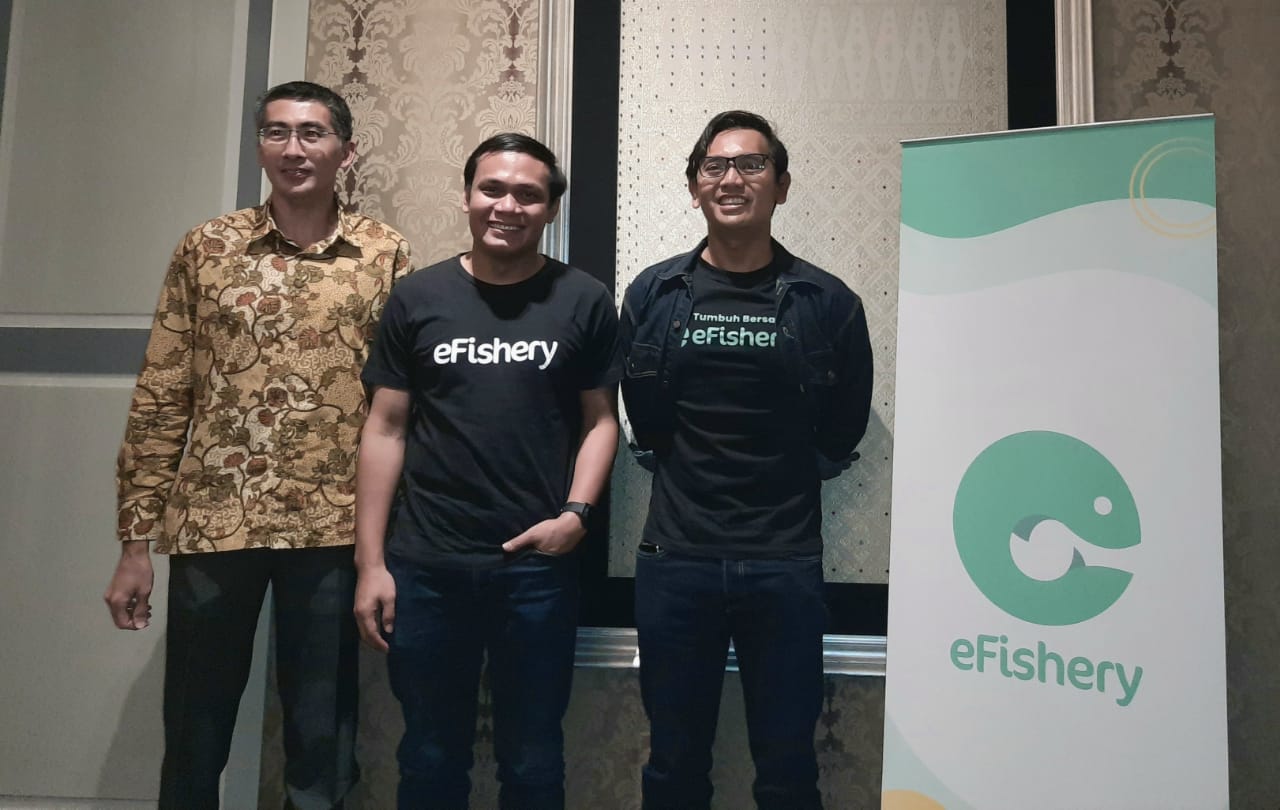The thing is, the monthly payroll system in Indonesia held an issue for most workers. According to BPS data, Indonesia has at least 129 million workers, many of whom face financial pressures and difficulties caused by irregular cash flow, monthly payment schedules, unexpected expenses, and limited financial access.
The World Bank FINDEX estimates that 70% of Indonesians borrow money from informal institutions, often with high-interest rates and super-tense collection systems. GajiGesa intends to solve this issue, which was initiated at the end of 2020 by Martyna Malinowska (previously Standard Chartered Bank’s Product Lead and LenddoEFL’s Product Director ) and Vidit Agrawal (formerly APAC Strap’s Head of Business Development, CARRO’s COO , and Uber’s first employee in Asia).
In an interview with DailySocial, Agrawal explained that the idea was first initiated by Martyna, she had to work extensively with blue-collar employees at LenddoEFL, most of whom were unbanked since 2016. Martyna saw firsthand that the challenges to factory workers in gaining financial access were very limited, especially when getting additional capital.
If possible, they choose to take short tenors because of liquidity problems. However, this is contrary to the principle of loans in financial institutions in general, they are required to take long-term loans with higher nominal loans or short-term loans with high-interest rates.
At the same time, Agrawal was working in Southeast Asia for Uber. The average driver earns $250 per month, excluding Singapore. The main issue also concerns harassment by lenders. “Observing the many challenges faced by blue-collar workers to complete short-term access to capital that is fair and reliable is an inspiration for GajiGesa,” Agrawal explained.
GajiGesa provides services for employers and employees in speed up cash flow with financial products, including flexible salary access or what is known as Flexible Earned Wage Access (FEWA), financial education, bill payments, real-time analysis, and more.
For employees, GajiGesa provides real-time access to early salaries for employees for the current month, which can be used to pay bills, buy credit and data packages, and access financial education.
Meanwhile, for employers, the GajiGesa analysis platform provides the HR team to measure the effectiveness of financial health strategies, get real-time visibility into engagement, maintain retention and productivity, and employee financial health.
Employers have the flexibility and control to offer FEWA to all employees, able to decide whether they want to take this service to employees for an additional fee or as part of a benefits package.
Agrawal emphasized that the GajiGesa concept is different from cash loans like those run by most lending companies in Indonesia. The company actually collaborates with various multi-industry companies, integrating with corporate partners HRIS and payroll systems, ensuring efficient and fast integration.
Regarding license, he said that the company currently has a good relationship with OJK and is eager to continue working with regulators to ensure that the technology can benefit as many Indonesians as possible.
Currently, the company has partnered with 30 companies with tens of thousands of employees served in Indonesia.
Seed funding
GajiGesa announced seed funding of $2.5 million led by defy.vc and Quest Ventures. GK Plug and Play, Next Billion Ventures, Alto Partners, Multifamily Office, Kanmo Group, and several strategic angel investors participated in the round.
In an official statement, devy.vc’s Partner Bob Rosin said, “Lack of safe and reliable access to consumer credit is a critical problem in emerging markets. The majority of Indonesia’s 129 million workers are in the unbanked category. It is an honor to work with GajiGesa to support their mission of helping millions of hard workers achieve prosperity and financial security at work.”
Quest Ventures partner, Yiping Goh added, “GajiGesa helps middle to lower-income workers who live from paycheck to paycheck, deal with often stressful cash flow problems by providing the financial stability that employers and their employees urgently need, during times of the current economic uncertainty.
With this fresh fund, Agrawal will use it to expand its range of services, including investment in sales and customer success, and expand its technology team in Jakarta. “GajiGesa wants to add more wellness features for employees to provide a better experience when using the platform,” he concluded.
Global trend
A study conducted by Gartner predicted there will be 20% of US companies with the majority of hourly-paid workers by 2023, implementing flexible salary access solutions as part of efforts to improve worker experience, engagement, and retention.
Various companies have responded to this initiative through partnerships with fintech. Among other things, Square launched salary on-demand products, Visa and PayPal in collaboration with flexible payroll access providers, and Wagestream which also took advantage of this opportunity in Europe.
A study conducted by GajiGesa showed that more than 85% of workers admitted the ease of financial stress after getting access to flexible wages whenever they needed it. Then, the most common reasons for workers to access immediate salaries, including for investment purposes, paying debts, home renovations, vehicle repairs, and medical expenses.
Unfortunately, not all companies can provide this because it is thought to threaten the sustainability of the company’s cash flow. With the same spirit, KoinWorks has also explore this solution, through KoinGaji.
In terms of stage, KoinWorks, which is now a Super Financial App, has been registered as an IKD organizer in the Aggregator cluster at OJK. For the p2p lending product alone, we already have a license.
–
Original article is in Indonesian, translated by Kristin Siagian













